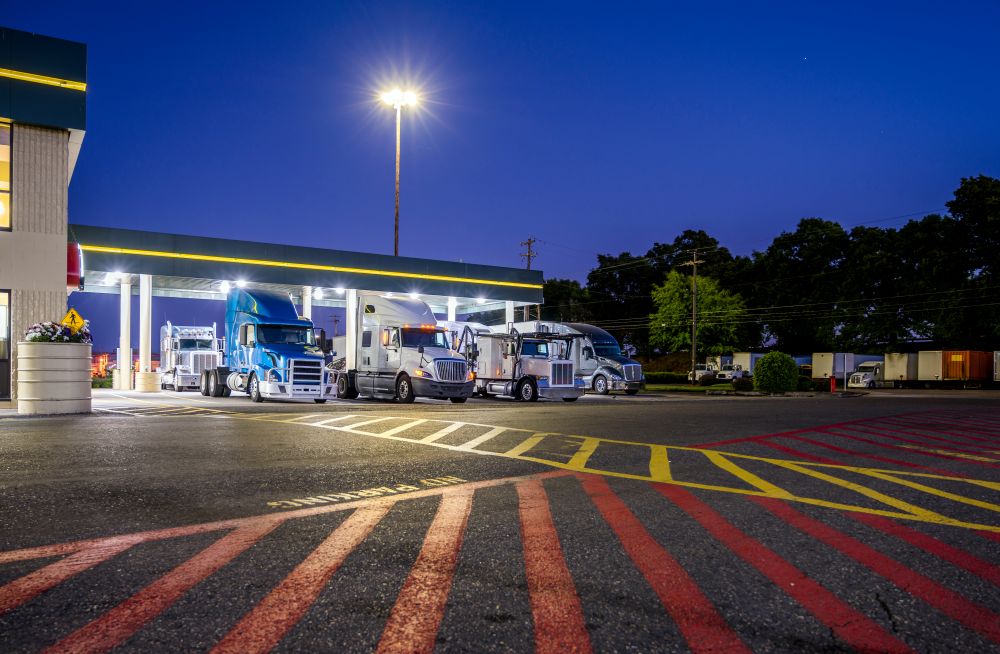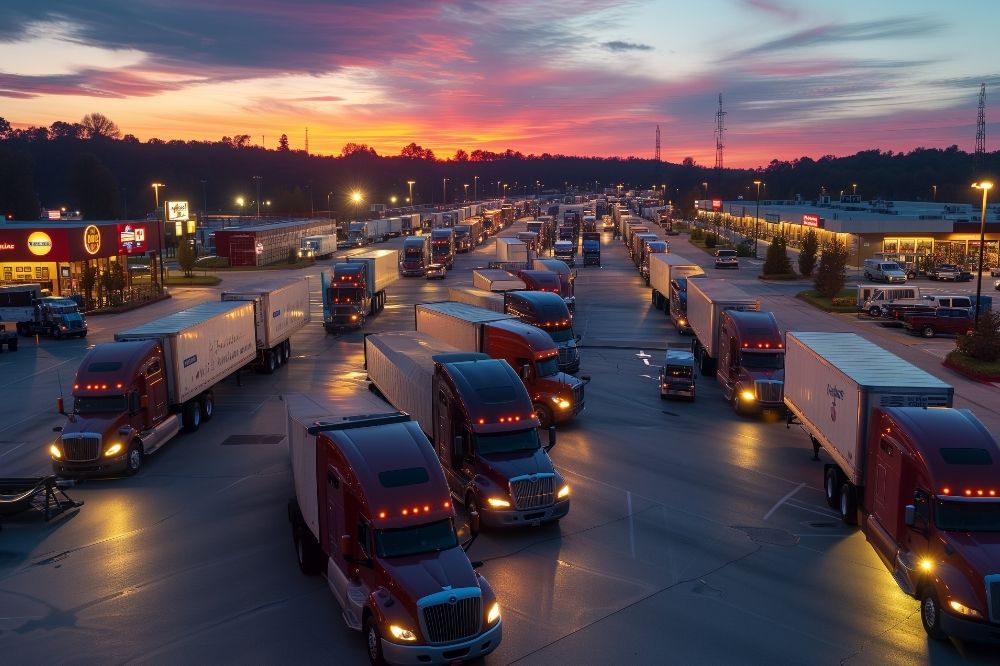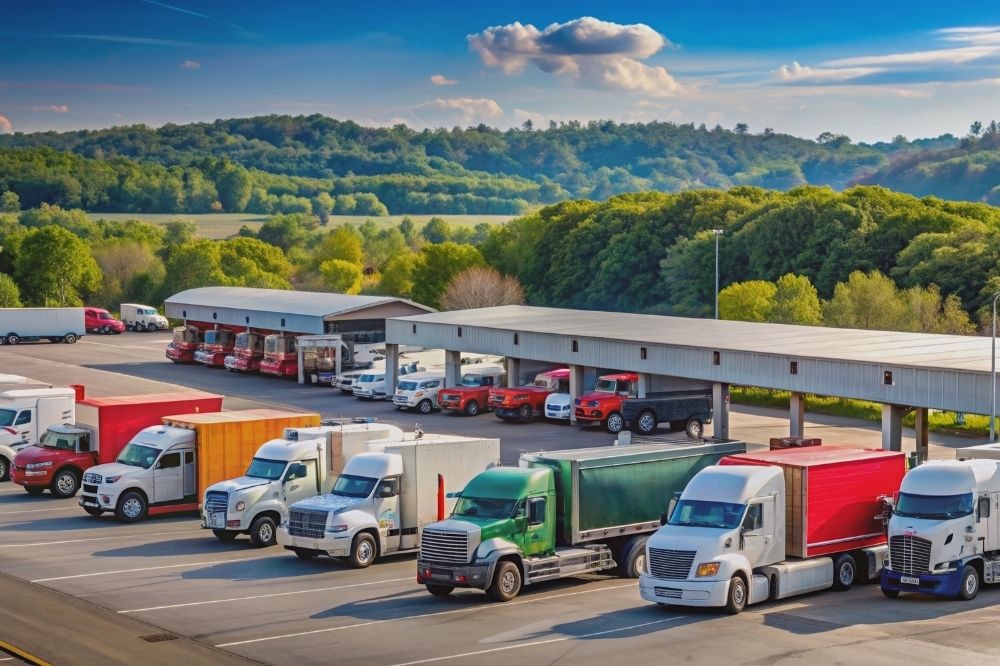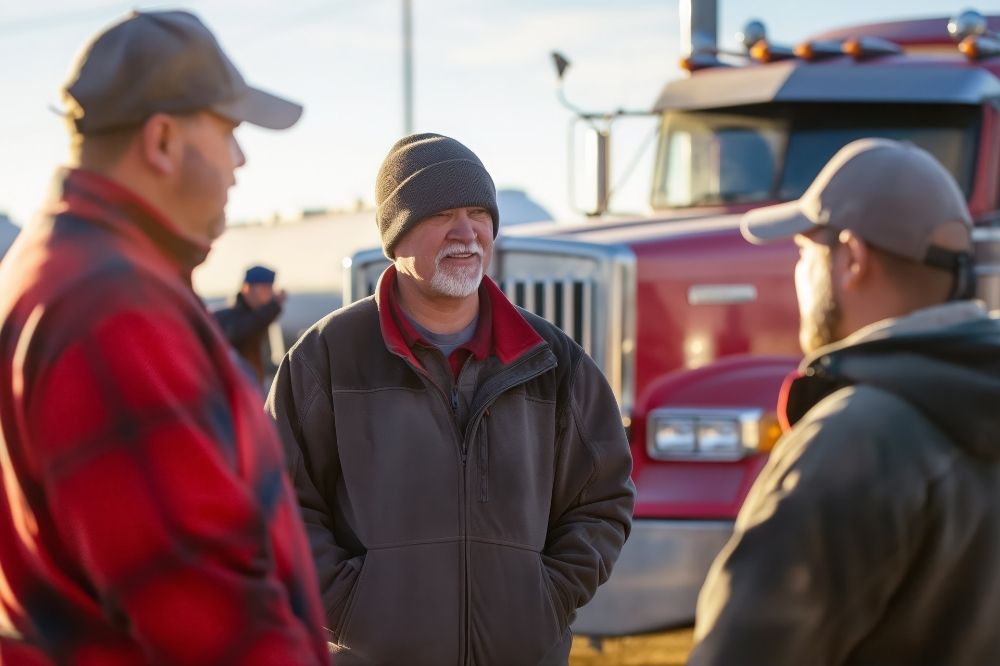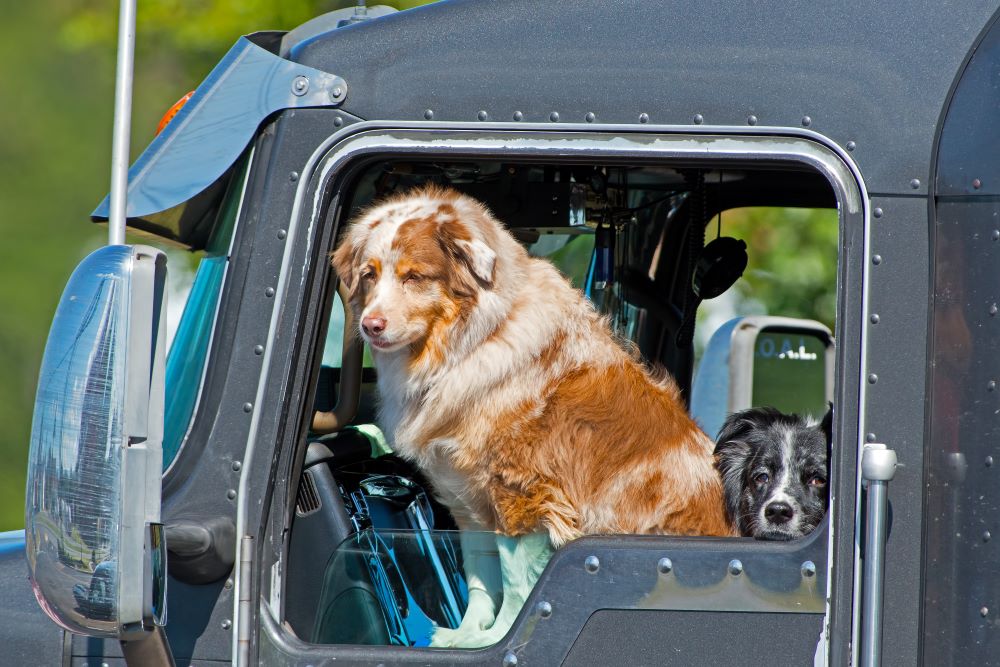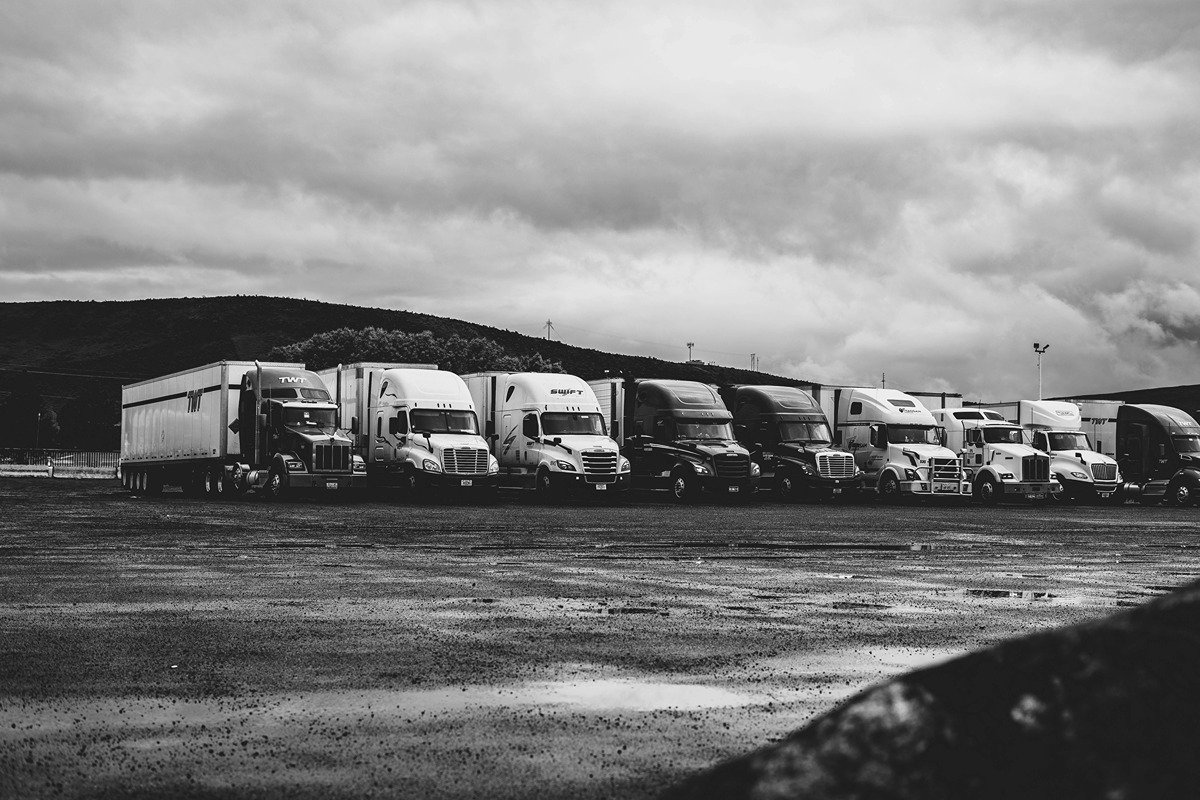
The life of a truck driver is unlike any other profession. For many, it’s a rewarding career that keeps the American economy moving.
From delivering freight across the country to navigating traffic congestion, truck drivers are essential workers who dedicate themselves to the open road. In fact, trucks move more than 70% of all freight in the U.S., making truck drivers a critical part of the nation’s supply chain.
If you’re considering how to become a truck driver, or you’re just curious about what a day in the life looks like, this guide will walk you through the ins and outs of the profession. We’ll explore a typical day, where truck drivers sleep, the rewards and challenges, and how to maintain a work-life balance.
A Typical Day in the Life of a Truck Driver
A day in the life of a truck driver often starts early and ends late. While many truck drivers have varying routines depending on their role and location, some common experiences tie the trucking industry together.
Morning Routine
For most truck drivers, the day begins with a pre-trip inspection of their tractor trailer.
This includes checking the brakes, lights, tires, and fluid levels to ensure the vehicle is safe to operate. Safety is critical in this profession, not just for the driver but also for other drivers on the road.
After a quick stop at a truck stop or rest area for coffee and breakfast, it’s time to get behind the wheel. Truck drivers often consult their dispatch about the next load, confirm delivery details, and plan for any potential traffic or weather conditions that could affect their route.
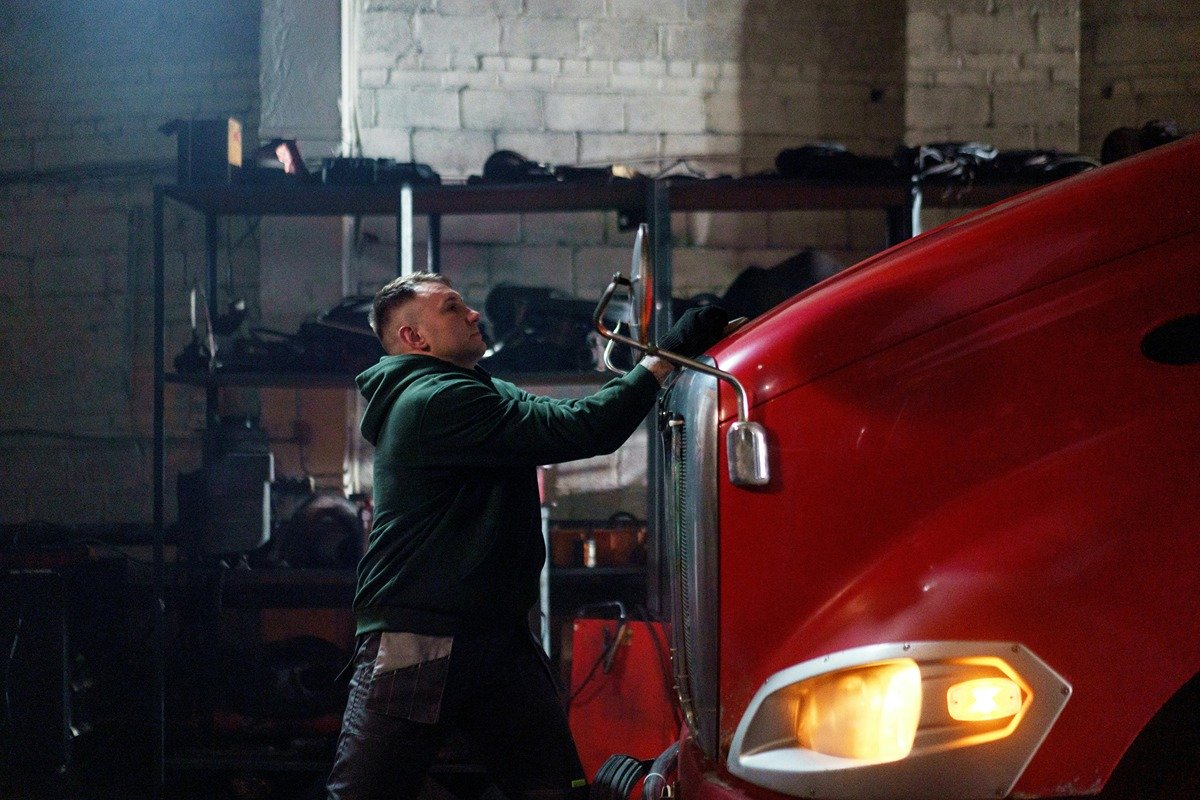
The Driving Experience
Once on the road, drivers must stay alert through long hours of navigating highways, cities, and rural areas.
From hauling cargo across state lines to dealing with traffic congestion, no two days are exactly alike. Truck driving offers a chance to meet people, see the country, and experience life beyond the cubicle.
The driving itself requires focus and patience. Whether you’re a company driver or running your own rig, you’re responsible for safely transporting freight in a big rig that can weigh up to 80,000 pounds.
Afternoon Activities
As the day continues, truckers often need to refuel, grab a bite, or wait for their load to be ready.
Many drivers use this downtime to contact family or catch up with friends. Some take the opportunity to plan the best routes for avoiding traffic and maximizing fuel efficiency.
Stops at truck stops offer more than just fuel. They provide a place to rest, shower, and chat with fellow truckers. In a job that can be isolating, these moments of connection matter.
Evening Decompression
After hours on the road, most drivers wrap up their day by logging hours, parking at a safe location, and prepping for the next day.
Depending on the company, they may sleep in the tractor trailer’s sleeper cab or a nearby motel. For company drivers working home weekly routes, it might mean a return to their own beds.
As night falls, some take time to unwind with a show or a call home. Truck drivers enjoy the small routines that bring structure to a lifestyle known for unpredictability.

Where Do Truck Drivers Sleep?
Many truck drivers sleep in their trucks, specifically in sleeper cabs designed for long-distance hauling.
These cabs typically feature a bed, storage space, and sometimes even a mini-fridge or microwave. Long haul drivers often park at truck stops or rest areas to catch some shut-eye.
For regional drivers or those working local routes, they might return home at night or stay in hotels. Regardless of where they sleep, rest is critical for safety and performance on the job.
Rewards of Being a Truck Driver
The life of a truck can be incredibly rewarding, both personally and professionally. For many, truck driving isn’t just a job. It’s a chance to build a rewarding career that offers job security, financial stability, and the freedom of the open road.
With the trucking industry experiencing a continued high demand for qualified drivers, many trucking companies are offering competitive pay and attractive benefits to bring new talent into the driver’s seat.
Even better, you don’t need a college degree to get started. In most cases, a high school diploma and the right training are all it takes to become a truck driver.
And while the paycheck is important, most drivers find value in many other aspects of the job. This could include independence, variety, and the opportunity to travel the country.
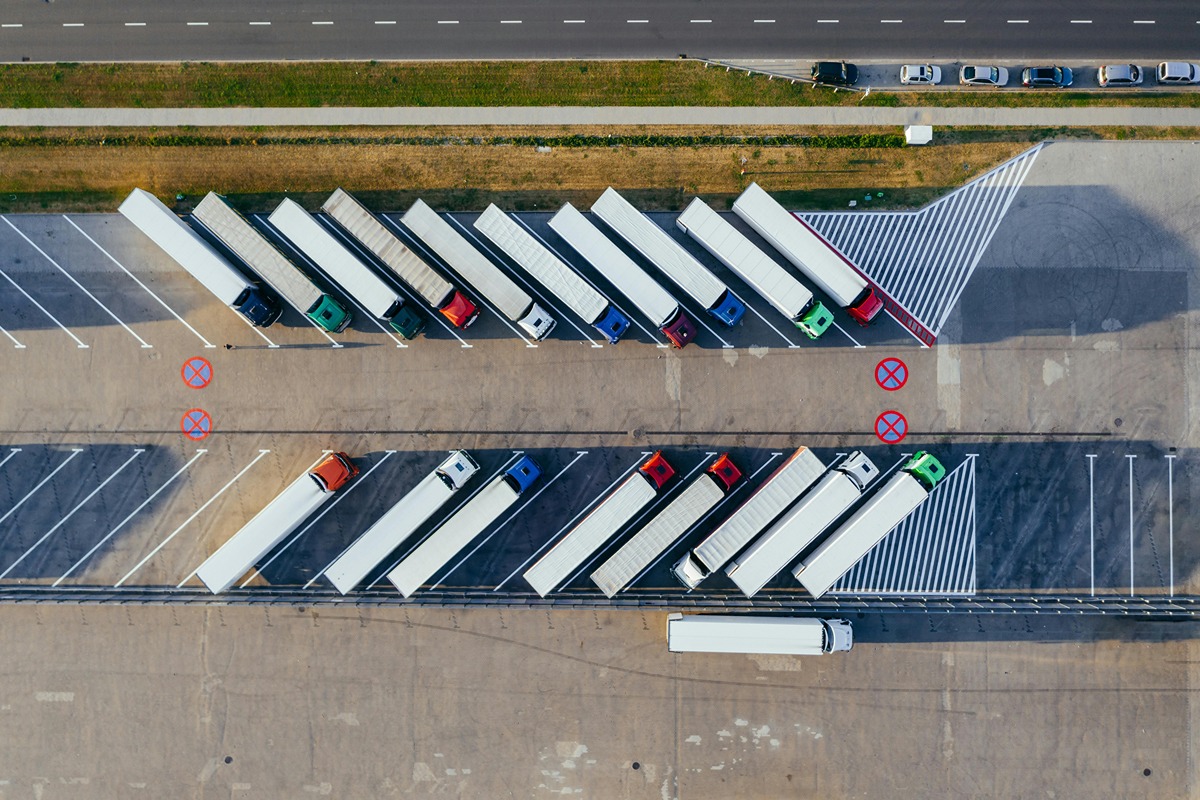
Challenges Faced by Truck Drivers
Despite the perks, truck driving isn’t without its challenges. The life of a truck driver can be demanding, especially for those new to the trucking industry. Here are some of the most common obstacles that many truck drivers face:
- Long hours behind the wheel lead to fatigue and limited time for rest.
- Extended time away from family and friends, especially for long haul and over-the-road routes.
- Unpredictable weather conditions that can impact safety and slow down delivery times.
- Health concerns, including limited access to healthy food, exercise, and regular sleep schedules.
- Stress from tight deadlines, managing heavy or sensitive freight, and the pressure to stay on schedule.
- Traffic congestion, construction delays, and navigating through unfamiliar cities and routes.
Still, most truck drivers say the rewards outweigh the challenges, especially with the right support system and schedule.
Essential Skills and Qualities
Based on our expertise, truck drivers need more than just a commercial license to thrive in this profession.
Strong time management, navigation skills, and the ability to handle stress are crucial. You’ll need to manage your load, communicate with dispatch, and make quick decisions on the road.
A solid understanding of vehicle maintenance and a commitment to safety are must-haves. For those who support drivers, such as dispatchers or logistics staff, clear communication and scheduling flexibility are key to keeping everything running smoothly.
Balancing Work and Family Life
Maintaining relationships while on the road is tough, but not impossible.
Many drivers use video calls and text messages to stay in touch with loved ones. Choosing a company that offers home weekly or flexible scheduling can make a big difference.
Even when away for weeks, thoughtful gestures like postcards or surprise video calls help keep family bonds strong. Ultimately, the right balance comes down to communication, planning, and support from both the driver and their loved ones.

Health and Wellness Tips for Truck Drivers
Staying healthy behind the wheel means being intentional. Truck drivers can make use of downtime at truck stops or rest areas to stretch, walk, or do quick bodyweight workouts.
Choosing healthier meals, drinking plenty of water, and prioritizing sleep help maintain energy for long hours on the road. Mental health matters, too. Listening to music, podcasts, or audiobooks can ease loneliness.
And don’t underestimate the power of staying connected with family, friends, or even other drivers in the industry.
Conclusion
The life of a truck driver is filled with hard work, freedom, and responsibility. From sunrises on the open road to the satisfaction of delivering a load safely and on time, it’s a profession that supports the very backbone of the American economy.
While it’s not for everyone, truck driving remains a rewarding career for those with the grit, determination, and love for the road. Ready to take the next step toward your truck driving career? Mission Financial Services is here to help you get started.
Contact us today to learn more about our commercial vehicle financing options and drive your future forward with confidence.



